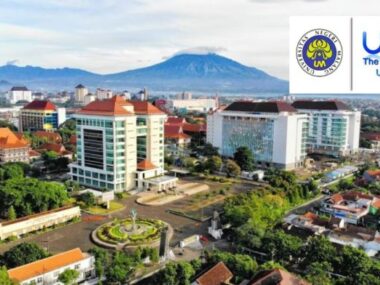Unveiling the Earth’s Secrets: A Guide to Introducing Geology in Education
Introduction:
Geology, the study of the Earth’s composition, structure, and history, is a fascinating field that unravels the secrets hidden within our planet. Understanding geology is crucial not only for gaining knowledge about our planet but also for addressing numerous environmental and societal challenges. This article aims to provide a comprehensive guide to introducing geology in education, enabling students to embark on a captivating journey of exploration and discovery.
I. The Importance of Geology in Education:
1. Building a Foundation for Earth Science: Geology serves as the basis for understanding various sub-disciplines within Earth science, including meteorology, oceanography, and astronomy. By introducing geology, students can develop a solid foundation that aids their comprehension of these interconnected fields.
2. Understanding Natural Processes: Geology provides insights into natural phenomena such as earthquakes, volcanic eruptions, and geological hazards. By studying geology, students can grasp how these processes shape our planet and impact our lives, fostering a sense of environmental awareness and responsibility.
3. Predicting and Mitigating Environmental Risks: Geology plays a crucial role in predicting and mitigating natural disasters such as landslides, tsunamis, and flooding. By equipping students with geologic knowledge, educational institutions can empower them to actively contribute to disaster preparedness and mitigation efforts.
4. Sustainable Resource Management: The Earth’s resources, including fossil fuels, minerals, and water, are intricately linked to geological processes. Educating students about geology allows them to understand the importance of responsible resource management and promotes sustainability.
II. Integrating Geology into the Curriculum:
1. Primary Education:
– Introduction to Rocks and Minerals: Introduce students to the rock cycle, rock types, and the role of minerals in everyday life.
– Earthquakes and Volcanoes: Present basic concepts about plate tectonics, the causes of earthquakes and volcanic eruptions, and their impacts.
2. Secondary Education:
– Geologic Time Scale: Familiarize students with the concept of deep time, including the diverse events and life forms that shaped the Earth over millions of years.
– Plate Tectonics: Explore the mechanisms behind plate movement, mountain formation, and the creation of various landforms.
– Geologic Hazards: Investigate geological hazards such as landslides, earthquakes, and tsunamis, emphasizing their causes, predictions, and preventive measures.
3. Tertiary Education:
– Fieldwork and Geological Mapping: Engage students in practical experiences, allowing them to apply geological principles while conducting fieldwork and mapping geological formations.
– Mineralogy and Petrology: Delve into the characteristics, identification, and classification of minerals and rocks, revealing their significance in understanding geological processes.
– Environmental Geology: Emphasize the interrelation between geology and the environment, addressing topics such as groundwater resources, pollution, and climate change.
III. Frequently Asked Questions (FAQs):
1. Why is geology important for understanding climate change?
Geology provides evidence of past climates through the study of fossils, sedimentary rocks, ice cores, and other geological records. By analyzing these records, scientists can distinguish between natural climate variations and the human-induced changes, aiding in the development of effective climate change mitigation strategies.
2. What career opportunities are available in geology?
Geology presents a range of career paths, including mineral exploration, environmental consulting, natural resource management, geological engineering, and academia. Geologists play a crucial role in industries such as mining, energy, and environmental planning.
3. How can students engage in practical geologic activities outside the classroom?
Several avenues for practical engagement include participating in geological field trips, joining geology clubs or societies, volunteering in community-based geologic projects, and pursuing research opportunities with academic institutions or geological organizations.
Conclusion:
Introducing geology in education is a powerful means to unlock the Earth’s secrets and foster a deeper understanding of our planet’s intricate processes. By integrating geology into various educational levels and curricula, students gain the necessary knowledge to address environmental challenges, predict geological hazards, and contribute to sustainable resource management. Harnessing the wonders of geology empowers future generations to protect and preserve the Earth for the betterment of our planet and humanity as a whole.






